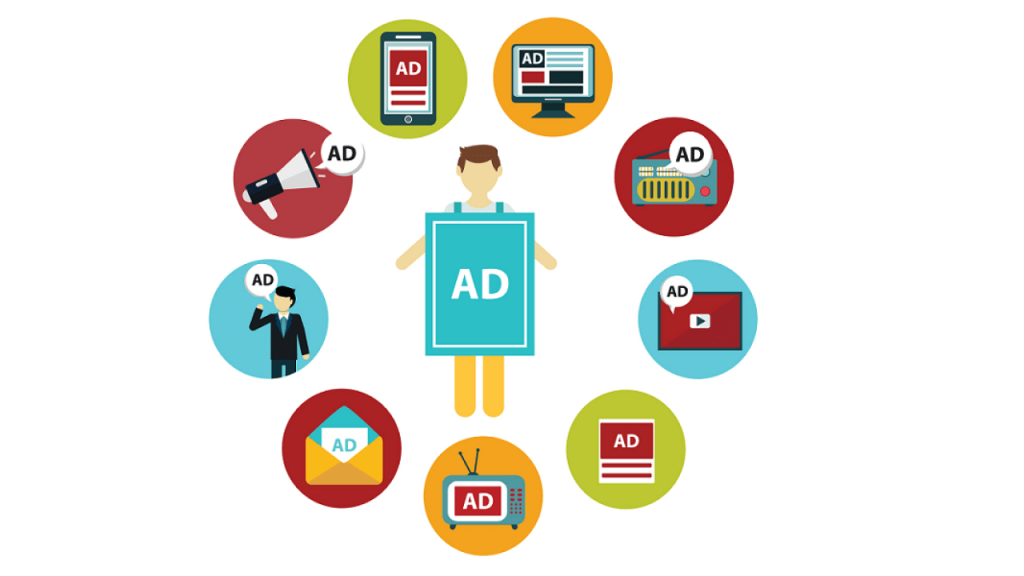Written by Erin Aldridge

As I sit on my couch in the comfort of my home, I scroll through Netflix looking for something to watch. Click, click, click – “recommended for you”. Perfect! I find a movie and turn it on. I open my phone to check social media: instagram, snapchat, twitter, facebook. It’s a quick browse but I’m on there long enough to see at least 3 ads on the different platforms. A jewelry ad, Sephora ad, and cauliflower pizza ad, all things I absolutely love. How did they know?
Now-days, almost every advertisement I see online is targeted special for me. I get the benefit of only seeing advertisements I might actually be interested in, and advertising companies get to pinpoint someone they know is in their target market. It’s a win-win! – right?
Unfortunately, with this new form of tailored advertising comes a big drawback, privacy. For us as marketers, this is something we’ve come to realize and use to our advantage – but at what cost? Data is taken every day on billions of people about their age, race, gender, preferences, interests and so much more without them even knowing. This collection of private information has triggered problems throughout presidential elections, Brexit votes, ad campaigns, and more. Advertisements aren’t simply sources for promotion anymore, they’re being used to directly influence and coerce peoples opinions and ideas. On a scale of 1-5, this problem reaches a 4.5 for me. This kind of “blackbox” system is something the world has never seen before and no one knows how to handle it (Cadwaller).
The question we really have to ask ourselves as professional marketers is is this fair? And if not, what are we going to do about it?
First step is always recognizing the existence of a problem. In a TED talk presented by Zeynep Tufekci, she states how computers and programming is “ethics all the way down” (Tufekci). Creating programs that track human behavior isn’t a task that only a computer should be handling, the creators of the operating system need a code of ethics that guides their whole process.
So let’s break it down. This simple code of ethics should help guide your decision making process when using display advertising or any sort of customer tracking.
1.BE TRUTHFUL
- this ones in capitals because it’s really REALLY important. If you’re using data to target a customer, they should know. Simply stating at the bottom of an advertisement “specially sourced for you based on search history” its a nice gentle way to tell your customers that you’re collecting their data.
2. Always keep the customer as the customer
- This may seem obvious, but take Facebook for instance; they started as a company meant to connect people and build relationships and now they’ve wound up selling each persons data to advertising companies, making the customer the ultimate product (Taylor)! That’s some twisted value chain if you ask me.

3. Build your credibility
- people want a brand they can trust and rely on, so build up your credibility by promoting content that is honest. It’s also smart to use people that are credible and your customer would know and recognize. Even more so, using content from actual customers, like reviews, further spreads your credibility (Crosby).
4. Give Customers the reassurance they want
- This goes hand in hand with credibility, but it’s worth mentioning on its own. Make sure you’re providing customers with reliable content, sometimes with objective results (Crosby).
5. Create a call to action – but don’t push it!
- Every advertisement should prompt the customer to do something, but they should never feel like they’re being coerced or forced.

6. Keep a long-term view in mind
- This goes to both the customers and your company. Everything that you say or advertise online has a trace, so make sure that if someone traced your actions 20 years later, the content that you created would be something to be proud of.
7. Don’t only rely on the computer
- At every step of the way, people should be monitoring and taking action alongside a computer program meant to track customer behavior. Computers don’t have strong morals, so the people working alongside them should.
8. At the end of the day, have the customer’s back
- When it comes down to it, business is built to adhere to consumers needs and while current advertising efforts have the positive ability to do just that, we need to think about what it’s costing us. Relationships are built off trust, and if we lose that, what do we have left to work with?
Thanks again for reading my blog, if you want to check out other sources along this topic I encourage you to look further into some of the sources I quoted in this article.
Cadwallar, Carole. (2019, April). Facebook’s role in Brexit – and the threat to democracy . Retrieved from https://www.ted.com/ talks/carole_cadwalladr_facebook_s_role_in_brexit_and_the_threat_to_democracy?language=en#t-49770
Crosby, Lawrence A, and John P Vidmar. “Can Marketer’s Repair Social Media’s Crisis of Trust? .” Medium.com, American Marketing Association, 21 Mar. 2018, https://medium.com/ama-marketing-news/can-marketers-repair-social-medias-crisis-of-trust-6d7f3fb1f797.
Taylor, Kenneth. “The End of Privacy.” Philoso?y Talk, Philosophy Talk, 6 Apr. 2018, https://www.philosophytalk.org/blog/end-privacy.
Tufekci, Zeynep. (2016, June). Machine Intelligence Makes Human Morals more Important . Retrieved from https://www.ted.com/talks/zeynep_tufekci_machine_intelligence_makes_human_morals_more_important#t-575126.
